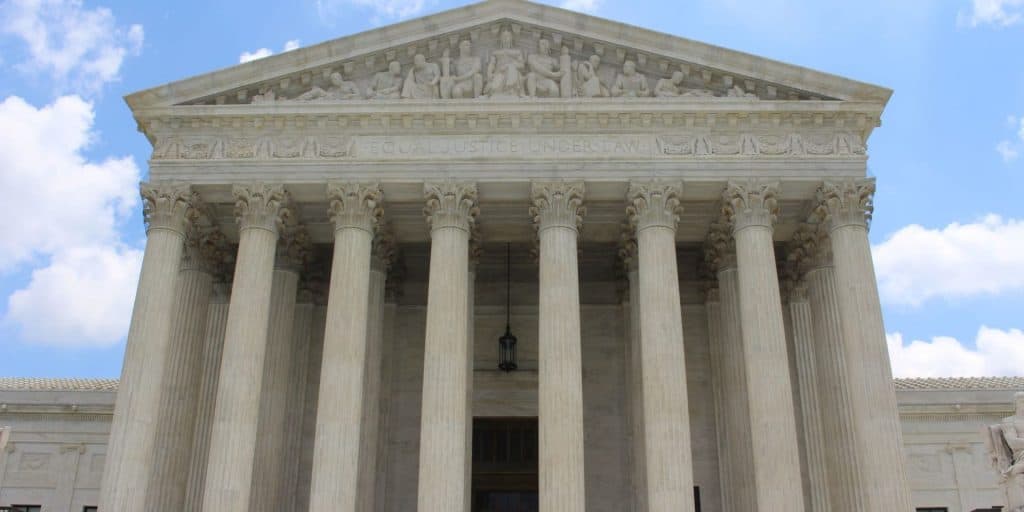Are you ready to master the ins and outs of the personal injury claims process in Washington State? Look no further! In this article, we’ll guide you through every step, from the initial consultation to negotiating a settlement and even filing a lawsuit if necessary. So, buckle up and get ready to navigate the legal system like a pro. By the end, you’ll have the knowledge and confidence to understand how to proceed with your personal injury claim.
Table of Contents
Key Takeaways
- Prompt medical treatment is crucial for your health and strengthens your personal injury case.
- Consulting a personal injury lawyer is advisable, especially for significant injuries or complex cases.
- Investigating and preparing your case involves gathering information, obtaining medical records, and consulting experts.
- The personal injury claims process may involve negotiating a settlement before filing a lawsuit, followed by the discovery phase and mediation/negotiation process.

Initial Consultation
During the initial consultation with a personal injury lawyer in Washington State, you will discuss the details of your accident and injuries. This is a crucial step in the personal injury claim process. Personal injury lawyers, also known as personal injury attorneys, are experienced professionals who can guide you through the complex legal process and help you receive the compensation you deserve.
During the consultation, you should provide your lawyer with all relevant documents and information related to your case. This includes medical records, police reports, photographs of the accident scene, and any other evidence you have gathered. Your lawyer will review these documents to gain a thorough understanding of your case and determine the best course of action.
In addition to discussing the details of your accident, your lawyer will also discuss your injuries and their impact on your life. It is important to be open and honest about your injuries, as this will help your lawyer accurately assess the value of your claim. Your lawyer will also discuss the potential for recovery and the timeline for your case.
The initial consultation is an opportunity for you to ask any questions you may have about the personal injury claim process. Your lawyer will explain the legal process to you and address any concerns or doubts you may have. This is also a chance for you to evaluate the lawyer’s experience and determine if they are the right fit for your case.
Once the initial consultation is complete, the next step in the personal injury claim process is the investigation phase. During this phase, your lawyer will gather additional evidence and build a strong case on your behalf.
Investigation
To begin the investigation phase of your personal injury claim in Washington State, your lawyer will gather additional evidence and build a strong case on your behalf. This phase is crucial in determining liability and assessing the damages you may be entitled to. Here are four key steps your lawyer will take during the investigation:
- Reviewing the accident scene: Your lawyer will thoroughly examine the accident scene to gather important details and evidence. This may include taking photographs, measuring skid marks, and documenting any other relevant factors that could help establish fault.
- Obtaining police reports: Your lawyer will obtain a copy of the police report filed after the accident. This report often contains valuable information such as witness statements, the officer’s observations, and any citations issued. These reports can be vital in proving liability.
- Gathering accident-related injuries: Your lawyer will work closely with you to compile a comprehensive list of your accident-related injuries. This includes obtaining medical records, bills, and any other documentation that supports your claim for damages. These records will serve as evidence of the extent of your injuries and the medical treatment you have received.
- Identifying and interviewing witnesses: Your lawyer will locate and interview witnesses who were present at the time of the accident. Their statements can provide valuable insight into the events leading up to the incident and help establish liability.
Medical Treatment
Seeking prompt medical treatment after an accident is crucial for ensuring your health and strengthening your personal injury claim in Washington State. It is important to understand that delaying medical treatment may weaken your injury claim. Therefore, it is essential to seek medical attention as soon as possible after the accident.
Receiving immediate medical treatment not only helps you recover from your injuries, but it also provides vital evidence for your personal injury claim. Medical records serve as proof of your injuries and their severity, which can significantly impact the compensation you receive. These records establish a clear link between the accident and your injuries, making it more difficult for the insurance company to dispute your claim.
During your medical treatment, it is imperative to follow your healthcare provider’s advice and attend all scheduled appointments. Additionally, it is crucial to keep detailed records of your medical bills, including any expenses related to medication, therapies, or follow-up visits. These records will be instrumental in calculating the compensation you are entitled to.
When it comes to medical treatment, it is essential to keep in mind that the insurance company may try to minimize the extent of your injuries to reduce the settlement amount. By promptly seeking medical attention and keeping thorough records, you can strengthen your case and ensure that you receive fair compensation for your injuries and related expenses.

Demand Package
After receiving prompt medical treatment and gathering all necessary documentation, it is time to prepare your demand package for your personal injury claim in Washington State. A demand package is a crucial step in the personal injury claims process as it outlines your case and presents your request for compensation to the insurance carrier. Here are four key elements to include in your demand package:
- Detailed Explanation of the Accident: Provide a clear and concise account of how the accident occurred. Include relevant details such as the date, time, location, and any contributing factors. This will help establish liability and demonstrate the other party’s negligence.
- Documentation of Financial Damages: Include all medical records, bills, and receipts related to your injuries. This includes expenses for hospital visits, surgeries, medications, and rehabilitation. Additionally, include documentation of any lost wages or income due to your injuries. Providing a comprehensive record of your financial damages will support your claim for compensation.
- Narrative Statement of Pain and Suffering: Describe the physical and emotional impact of your injuries in detail. Include information about any pain, discomfort, or limitations you are experiencing as a result of the accident. This narrative will help convey the non-economic damages you have suffered and enhance your claim for a fair settlement.
- Settlement Demand: Clearly state the amount of compensation you are seeking from the insurance carrier. This demand should be supported by the documentation and evidence provided in your demand package. It is important to be realistic and reasonable in your settlement demand, taking into account the extent of your injuries and the impact on your life.
Preparing a comprehensive and well-documented demand package is crucial for successful settlement negotiations. It is advisable to seek the assistance of a personal injury lawyer who can guide you through the process, ensure that your demand package is strong, and help you pursue a fair settlement.
Negotiations
Start the negotiation process by presenting your demand package to the insurance carrier. After gathering all the necessary documentation and evidence to support your personal injury claim, it is time to initiate negotiations with the insurance company. The negotiation process is a crucial stage in reaching a settlement agreement and obtaining fair financial compensation for your injuries.
During negotiations, the injured party, or their attorney, will present a demand for compensation to the insurance carrier. This demand package typically includes a detailed explanation of the accident, the injuries sustained, and the financial losses incurred as a result. It may also include medical records, bills, and any other relevant evidence that supports the claim for fair compensation.
The insurance carrier will then review the demand package and evaluate the merits of the claim. They may conduct their own investigation and gather additional information to assess liability and the extent of the injuries. Once they have completed their assessment, they will respond with a settlement offer.
Negotiations often involve back-and-forth communication between the injured party’s attorney and the insurance company. Both parties will negotiate the terms of the settlement, including the amount of financial compensation to be awarded. It is important to remember that negotiations can be a lengthy process, as both sides aim to reach a fair settlement agreement.
Throughout the settlement process, it is crucial to remain patient and open to compromise. Your attorney will advocate for your best interests and work towards obtaining fair compensation for your injuries. If a fair settlement cannot be reached through negotiations, it may be necessary to consider other options, such as mediation or filing a personal injury lawsuit.
Settlement
During the negotiation process, you will present a demand package to the insurance carrier to initiate discussions and work towards a settlement agreement. Settlement is the resolution of your personal injury claim without going to trial. It involves both parties, you and the defendant’s insurance company, coming to an agreement on the amount of compensation that will be paid to you for your injuries and damages. Here are four important things to know about the settlement process:
- Time frame: Settlement negotiations can take some time, as both parties need to review the evidence, medical records, bills, and other relevant information. The length of time varies depending on the complexity of the case and the willingness of the insurance company to negotiate.
- Defendants’ insurance: The settlement will be paid by the defendant’s insurance company, not the individual themselves. Insurance policies are in place to cover the expenses and damages resulting from accidents and injuries.
- Discovery: Before reaching a settlement, both parties will go through the discovery phase. This is where both sides exchange information and evidence related to the case. It helps to establish the strengths and weaknesses of each party’s position, which can influence the settlement negotiations.
- Seeking advice: It is highly recommended to seek the advice of a personal injury lawyer during the settlement process. They have the expertise and experience to guide you through negotiations, ensure your rights are protected, and help you obtain a fair settlement. A lawyer can also help in assessing the value of your claim and negotiating on your behalf to maximize your compensation.
Litigation
To proceed with litigation, you will need to file a personal injury lawsuit in Washington State. This is the next step if you and the insurance company are unable to reach a settlement agreement. Filing a personal injury lawsuit means initiating a legal claim against the party responsible for your injuries. It is important to note that once you file a lawsuit, the case will enter the discovery phase.
During the discovery phase, both parties will have the opportunity to exchange information and evidence related to the case. This includes gathering documents, such as medical records and bills, witness statements, and any other evidence that supports your claim. Your legal representation may also hire experts, such as medical experts or accident reconstruction specialists, to provide reports and testimony regarding the extent of your injuries and the circumstances surrounding the accident.
In addition to gathering evidence, the discovery phase may involve meetings and depositions where both sides can question each other and any witnesses involved. These meetings are an opportunity for your legal representation to build a strong case by thoroughly examining the details of the accident and your injuries. It is important to have competent legal representation during this phase to ensure your rights are protected and your case is presented effectively.
Litigation can be a lengthy process, often taking several months or even years to reach a resolution. However, it provides an opportunity for you to present your case in court and seek the compensation you deserve for your injuries. Your legal representation will guide you through each step of the litigation process, advocating for your rights and working towards a favorable outcome on your behalf.
Mandatory Arbitration
If litigation becomes necessary, you may find yourself involved in mandatory arbitration as part of the personal injury claims process in Washington State. Mandatory arbitration is a process where a neutral third party, known as an arbitrator, reviews the evidence and makes a binding decision on the case. Here are four key points to understand about mandatory arbitration in Washington State:
- Statute of Limitations: It is important to be aware of the statute of limitations for filing a personal injury claim in Washington State. This is the time period within which you must file your claim. Failing to file within the statute of limitations can result in your claim being barred.
- Arbitration Hearing: During the arbitration process, both parties present their case to the arbitrator. This includes providing evidence, such as medical records and witness testimonies, to support their arguments. The arbitrator will carefully consider the evidence and make a final decision on the resolution of the case.
- No Jury: Unlike a traditional trial, mandatory arbitration does not involve a jury. The arbitrator acts as the sole decision-maker in the case. This can be advantageous for some individuals who prefer a more streamlined process without the uncertainties of a jury verdict.
- Legal Advice and Representation: It is crucial to seek legal advice and have a skilled legal team by your side during the mandatory arbitration process. An experienced personal injury attorney can guide you through the process, help you gather necessary records, and present a strong case on your behalf.
Understanding the mandatory arbitration process in Washington State is essential for navigating the personal injury claims process. With proper care and the assistance of a knowledgeable legal team, you can ensure that your rights are protected and that you receive fair compensation for your injuries.

Trial and Judgment
Once you have gone through the mandatory arbitration process, the next step in the personal injury claims process in Washington State is proceeding to trial and awaiting the judgment. This is the stage where accident victims have the opportunity to present their case in front of a judge and jury, who will then determine the outcome of their claim.
During the trial, both parties will present their evidence, including medical records, witness testimonies, and any other relevant documentation. Your experienced attorney will guide you through this process, ensuring that your case is presented effectively and persuasively. They will also cross-examine the opposing party’s witnesses and present arguments to support your claim.
At the end of the trial, the jury will deliberate and reach a verdict. The judgment will determine whether you will receive compensation for your injuries and losses. If the jury finds in your favor, you may be awarded damages for medical expenses, lost wages, pain and suffering, and other applicable damages.
However, it’s important to note that not all personal injury claims in Washington State go to trial. In fact, many cases are resolved through settlement negotiations before reaching this stage. Settlements are agreements reached between the parties, typically with the assistance of their attorneys and sometimes a mediator. These agreements allow both parties to avoid the time, expense, and uncertainty associated with a jury trial.
In the next section, we will discuss the compromise of liens, which is another important aspect of the personal injury claims process in Washington State.
Compromise of Liens
After reaching a settlement or obtaining a judgment in your personal injury case, it is important to address the issue of liens through the process of compromise. Liens are legal claims made by medical providers or other parties to recover the costs of treating your personal injuries. Failure to address these liens can result in your settlement or judgment being reduced or delayed. Here are four important things to understand about the compromise of liens in the personal injury claims process:
- Time Limit: The compromise of liens should be addressed within a specific period of time after reaching a settlement or obtaining a judgment. This period varies depending on the applicable laws and regulations, so it is crucial to consult with your attorney to ensure compliance.
- Negotiation Process: The compromise of liens involves negotiating with medical providers or lienholders to reduce the amount they are claiming. An experienced attorney can help you navigate this process and leverage their track record of successful negotiations to achieve the best outcome.
- Discovery Process: During the compromise of liens, it is important to gather all relevant documentation, including medical bills, records, and detailed information about the services provided. This information will be used to assess the validity of the liens and negotiate a fair resolution.
- Legal Assistance: Compromising liens can be a complex and time-consuming process. It is essential to work with an attorney who has a thorough understanding of the claims process and experience in dealing with liens. They can guide you through the negotiation process, protect your rights, and ensure a fair resolution.
Statute of Limitations
To ensure you take timely action in your personal injury case, it is important to be aware of the statute of limitations in Washington State. The statute of limitations refers to the time limits within which injury victims can file a lawsuit to seek compensation for their injuries. In Washington State, the statute of limitations for personal injury claims is generally three years from the date of the accident or injury.
Understanding the statute of limitations is crucial because if you fail to file a lawsuit within the specified time frame, you may lose your right to pursue a claim. It is important to note that there are exceptions and variations to the statute of limitations depending on the circumstances of your case. For example, if the responsible party is a government entity, there may be shorter time limits and additional procedural requirements.
In personal injury cases, it is essential to identify and hold the liable parties accountable for their actions. The statute of limitations serves as a reminder that time is of the essence in seeking justice and compensation. By adhering to the time limits set by the statute of limitations, you ensure that your claim is not barred due to untimely filing.
Now that you understand the importance of the statute of limitations, it is time to take the next step in the personal injury claims process: contacting a personal injury lawyer. A skilled lawyer can guide you through the intricacies of the legal system, help you understand your rights, and ensure that you meet all necessary deadlines. With their expertise, you can navigate the complexities of your case and strive for a fair resolution.
Contacting a Personal Injury Lawyer
To begin the process of contacting a personal injury lawyer, you should reach out to a reputable attorney who specializes in personal injury cases in Washington State. This is an important step to take if you have been injured in an accident and believe that someone else is at fault. A personal injury lawyer can guide you through the legal process and help you seek the compensation you deserve.
Here are four key reasons why contacting a personal injury lawyer is crucial:
- Experience with the law: Personal injury lawyers have a deep understanding of the laws and regulations surrounding accidental injuries and bodily injury claims. They are knowledgeable about the specific laws in Washington State and can use this expertise to build a strong case on your behalf.
- Maximizing your compensation: A personal injury lawyer will fight for your rights and work tirelessly to ensure you receive the adequate settlement you deserve. They will assess the full extent of your injuries and damages, including medical expenses, lost wages, pain and suffering, and future expenses. Their goal is to help you obtain the maximum monetary compensation possible.
- Negotiating with insurance companies: Dealing with insurance companies can be complex and overwhelming. Personal injury lawyers have experience negotiating with insurance adjusters and are skilled at advocating for their clients. They will handle all communication with the insurance company on your behalf, ensuring your rights are protected and increasing the likelihood of a fair settlement.
- Preparing for trial, if necessary: While many personal injury claims are settled before going to trial, some cases may require litigation. If your case does proceed to trial, a personal injury lawyer will be prepared to present a strong case in court. They will gather evidence, interview witnesses, and consult with experts to strengthen your case and increase your chances of a favorable outcome.
Contacting a personal injury lawyer is an important step in seeking justice and recovering the compensation you deserve. With their expertise and guidance, you can navigate the legal process with confidence and increase your chances of a successful outcome.
Frequently Asked Questions
How Long Does the Personal Injury Claims Process Typically Take in Washington State?
The personal injury claims process in Washington State typically takes several weeks to months. It’s important to gather evidence, seek medical treatment, and consult with a personal injury lawyer. They will investigate your case, obtain medical records and bills, and hire investigators and experts if needed. Your lawyer will consider negotiating a settlement before filing a lawsuit. The discovery phase and mediation process may follow. Remember, every case is unique, so the timeline can vary.
What Factors Can Affect the Outcome of a Personal Injury Claim in Washington State?
Various factors can influence the outcome of your personal injury claim in Washington State. The severity of your injuries, the strength of the evidence, and the credibility of witnesses all play a crucial role. Additionally, the insurance company’s response, the skill of your lawyer, and the judge or jury’s decision can impact the result. Understanding these factors and working with an experienced attorney can increase your chances of a successful outcome.
Can I Still File a Personal Injury Claim in Washington State if I Was Partially at Fault for the Accident?
Yes, you can still file a personal injury claim in Washington State even if you were partially at fault for the accident. Washington follows the rule of comparative negligence, which means that your compensation may be reduced based on your percentage of fault. However, it is crucial to consult with a personal injury lawyer who can assess your case and guide you through the legal process. They will help you understand your rights and maximize your chances of receiving fair compensation.
What Types of Damages Can Be Included in a Personal Injury Claim in Washington State?
In a personal injury claim in Washington State, various types of damages can be included. These may include medical expenses, both current and future, lost wages, pain and suffering, emotional distress, and property damage. The specific damages you can claim will depend on the circumstances of your case and the extent of your injuries. It is important to consult with a personal injury lawyer who can guide you through the process and help you maximize your claim.
Are There Any Exceptions to the Statute of Limitations for Personal Injury Claims in Washington State?
Yes, there are exceptions to the statute of limitations for personal injury claims in Washington State. The statute of limitations is the time limit within which you must file your claim. However, there are exceptions to this rule, such as if the injured person is a minor or if the injury was not immediately discoverable. It is important to consult with a personal injury lawyer to understand the specific exceptions that may apply to your case.
Conclusion
Now that you know how the personal injury claims process works in Washington State, you can confidently navigate your own case and ensure that you receive the compensation you deserve. Or you know the right questions to ask a reputable Personal Injury Lawyer about the personal injury claims process. Remember, the path to a successful personal injury claim involves initial consultation, thorough investigation, prompt medical treatment, strategic negotiations, and, if necessary, trial and judgment. Don’t forget to reach out to a personal injury lawyer for expert guidance and support. Now, go forth and conquer your personal injury claim!







